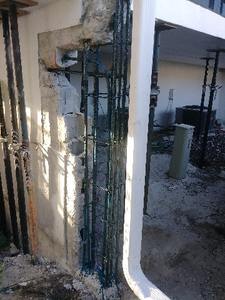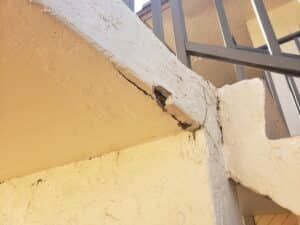Replacing windows and doors is a significant investment that can greatly enhance the appearance, energy efficiency, and security of any property. When making these changes, it’s essential to choose the right options to meet specific needs. With so many choices available, it can be overwhelming to decide which windows and doors are best suited for your home or commercial property. By understanding key factors and carefully considering each option, the decision-making process becomes much simpler and more effective.
One important aspect to consider is the style and material of the windows and doors. Different materials offer various benefits, such as durability, energy efficiency, and ease of maintenance. From traditional wood to modern vinyl, the material you choose will impact the lifespan and upkeep of your windows and doors. Additionally, selecting energy-efficient options can lead to significant cost savings on heating and cooling bills over time.
Another critical factor is ensuring proper installation. Even the highest-quality windows and doors can fail if they are not installed correctly. Proper installation ensures that windows and doors function as intended, providing insulation and security. By focusing on these key areas, you can make informed decisions that add value and performance to your property.
Factors to Consider When Replacing Windows and Doors
When replacing windows and doors, several important factors will guide your choices. First, consider the climate in your area. In locations with extreme weather, choosing windows and doors with good insulation and resistance to wind and moisture is essential. These features will help keep your indoor temperature stable and reduce energy bills.
Next, think about the security features. Doors and windows are entry points to any building, making them targets for potential break-ins. Look for options with robust locking mechanisms and shatter-resistant glass for added security. Safety is crucial, especially for homes and commercial properties in busy or high-risk areas.
Budget is another critical factor. Windows and doors come in various price ranges, so it’s important to establish a budget beforehand. While it’s tempting to go for the cheapest option, investing in high-quality materials can save money in the long run by reducing repairs and replacements. Balancing cost, quality, and durability will help you make the best decision for your needs.
Types of Materials for Windows and Doors
Choosing the right materials for windows and doors is key to ensuring durability and performance. Here are some common materials and their benefits:
1. Wood: Wood is a traditional choice that offers a classic look. It’s strong and provides good insulation. However, it requires regular maintenance to prevent rot and warping.
2. Vinyl: Vinyl windows and doors are popular due to their affordability and low maintenance. They resist moisture and don’t require painting. They’re also energy-efficient.
3. Aluminum: Aluminum is known for its strength and durability. It’s resistant to corrosion and ideal for large windows and commercial buildings. However, it provides less insulation compared to other materials.
4. Fiberglass: Fiberglass offers excellent durability and insulation. It can mimic the look of wood but requires less maintenance. It’s also energy-efficient and can withstand extreme temperatures.
5. Composite: Composite materials combine wood and vinyl or other synthetic materials. They offer the benefits of both, such as strength, low maintenance, and good insulation.
By understanding the pros and cons of each material, you can select the right type that fits your specific needs and preferences. This ensures that your windows and doors not only look great but function efficiently for years to come.
Energy Efficiency and Insulation Benefits
Energy efficiency is a significant factor to consider when replacing windows and doors. Efficient windows and doors can help lower energy bills by keeping the home warmer in the winter and cooler in the summer. One way to gauge the energy efficiency of a window or door is by looking at its insulation properties, usually measured by the U-factor. A lower U-factor indicates better insulation.
Energy-efficient windows often have multiple panes of glass. Double or triple-pane windows are more effective at insulating your home than single-pane windows. These windows usually have gas fills like argon or krypton between the panes to enhance insulation further.
In addition to glass, the frame material also plays a role in energy efficiency. For instance, wood and fiberglass frames generally offer better insulation than aluminum frames. Some modern windows also come with special coatings, known as Low-E (low-emissivity) coatings, that reflect heat and help keep your home comfortable year-round. By investing in energy-efficient windows and doors, we can enjoy a more comfortable indoor environment and save on energy costs.
Installation Tips for Long-Lasting Results
Proper installation is crucial to ensure that windows and doors perform well and last a long time. Here are some tips to ensure a successful installation:
1. Hire Professionals: While DIY might be tempting, hiring skilled professionals ensures the job is done right. Experts know how to handle the materials and can avoid common installation pitfalls.
2. Check Measurements: Accurate measurements are essential for a good fit. Incorrect measurements can lead to gaps that compromise insulation and security. Measure twice to cut down on errors.
3. Use Quality Sealants and Waterproofs: Proper sealing helps prevent drafts and water leakage. Quality sealants around the frame and at joints ensure a tight seal and protect against weather elements.
4. Weatherproofing: Adding weatherstripping to doors and windows further enhances their insulation properties. This simple step can also help reduce energy costs.
5. Follow Manufacturer Guidelines: Always adhere to the manufacturer’s installation instructions to avoid voiding any warranties. These guidelines are tailored to ensure optimal performance and longevity of the product.
By following these installation tips, we can maximize the lifespan and efficiency of new windows and doors. Proper installation not only improves performance but also adds to the overall value of the property.
Conclusion
Replacing windows and doors is a significant step in improving a property’s energy efficiency, security, and aesthetic appeal. By considering factors like material types, energy efficiency, and expert installation, we can make informed choices that offer long-lasting benefits. Each aspect, from careful selection to professional installation, plays a crucial role in the overall success of the project.
Whether you’re upgrading to better insulate your home or enhance its appearance, taking the time to choose the right windows and doors makes a big difference. Energy-efficient options can lead to substantial savings on utility bills, while proper installation ensures your new windows and doors will stand the test of time. As we move forward, keeping these tips in mind will guide you through the often-complicated process of window and door replacement.
For all your window and door replacement needs, contact McLeod’s Contracting Solutions. Our experienced team is here to help you make the best choices for your property. Improve your home’s efficiency and security with us today!







